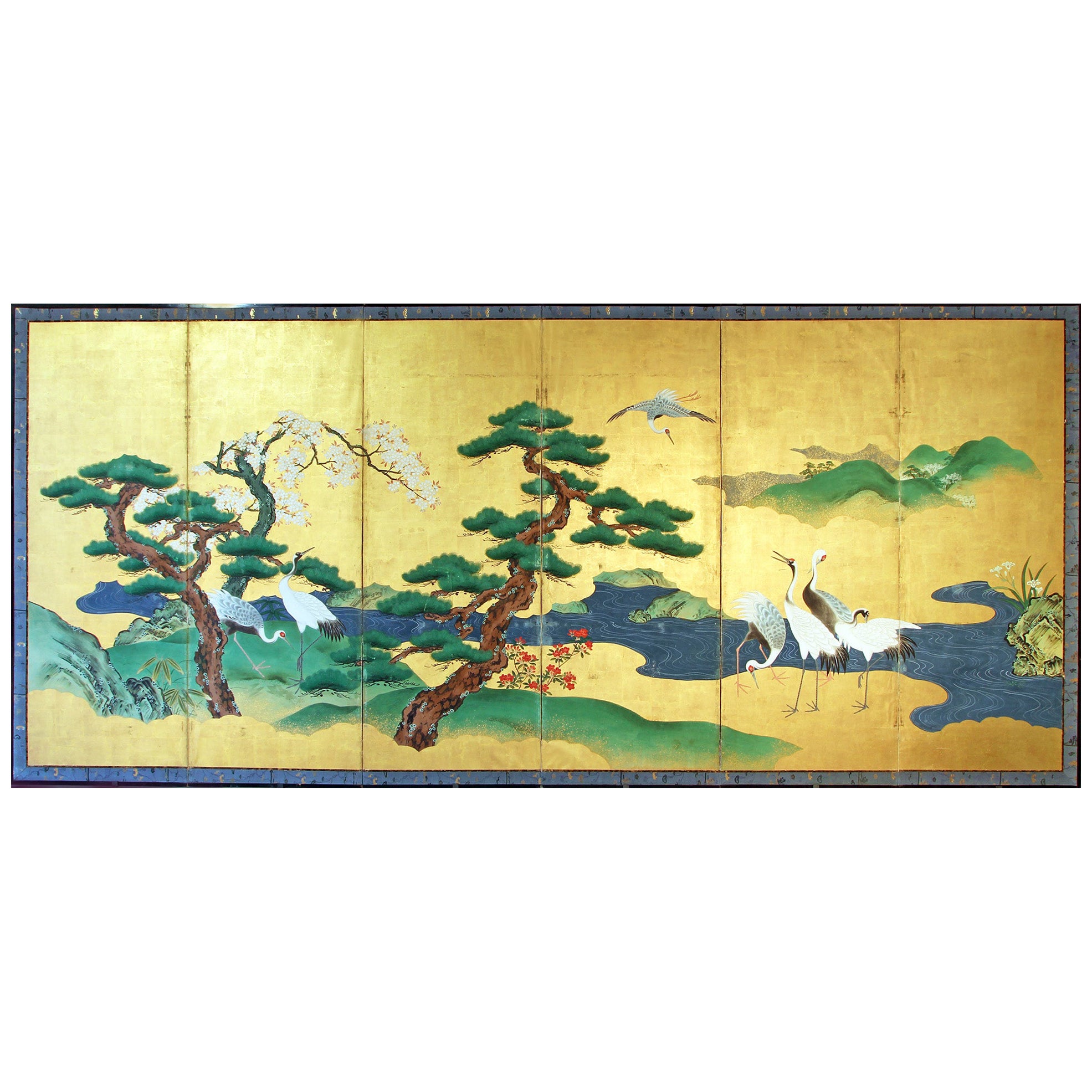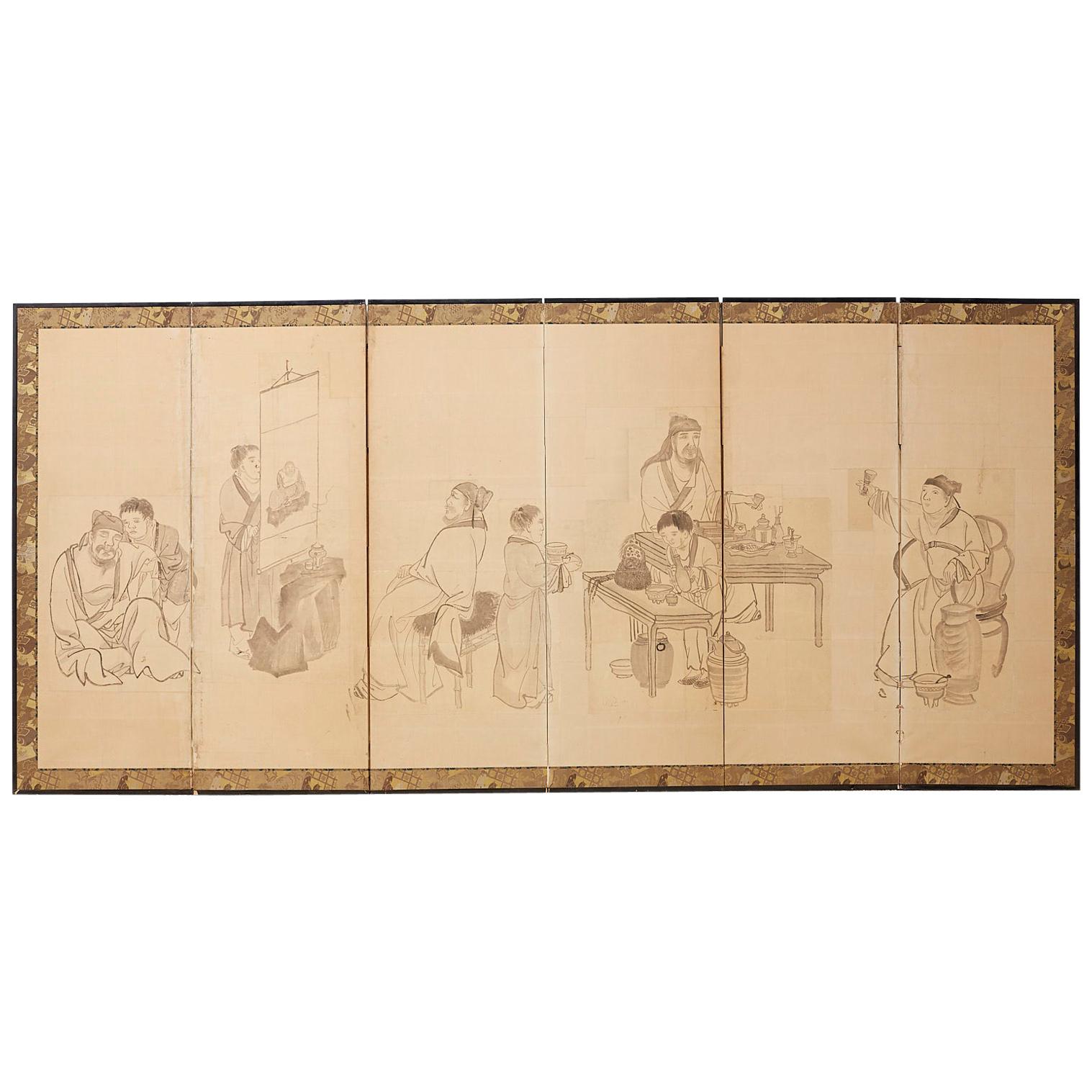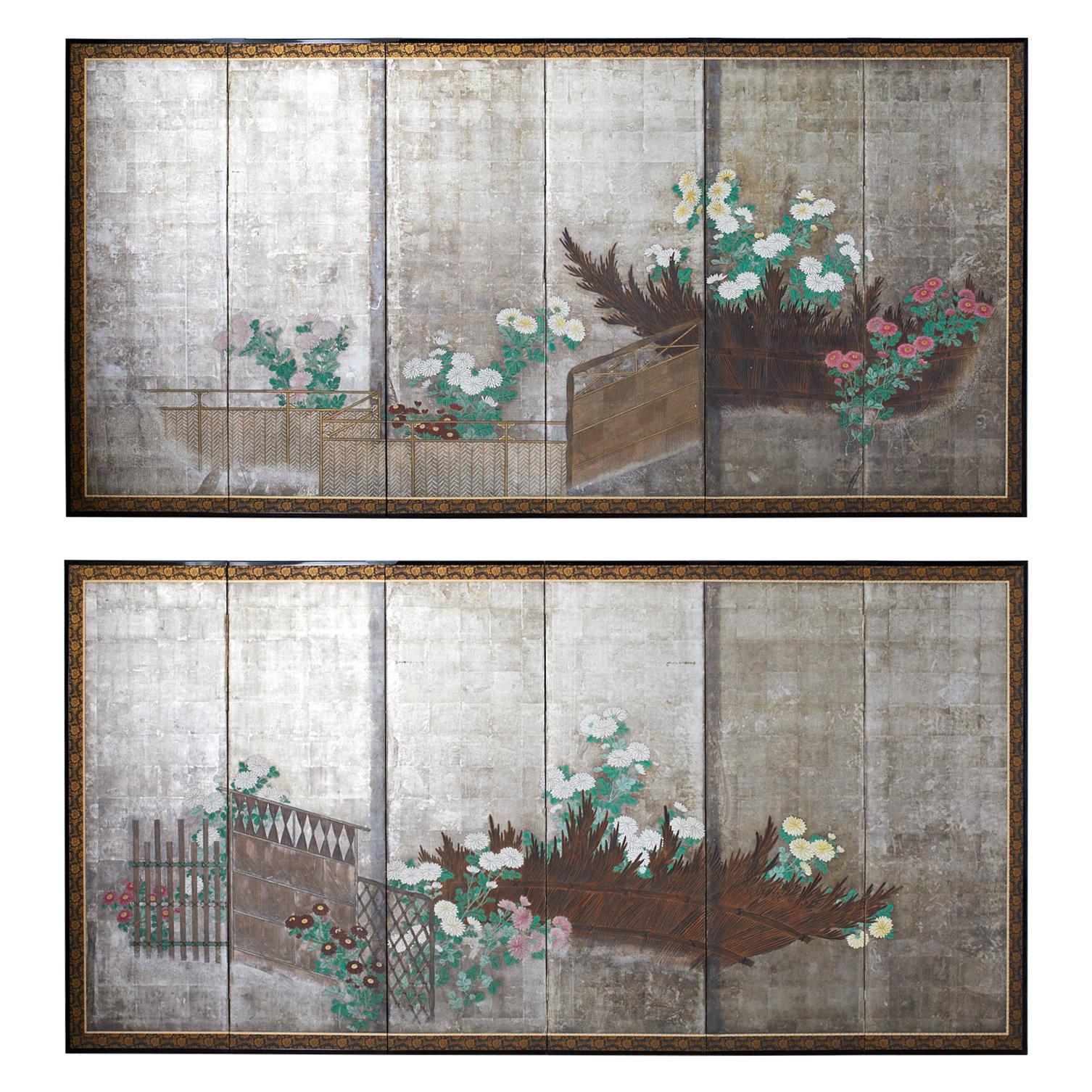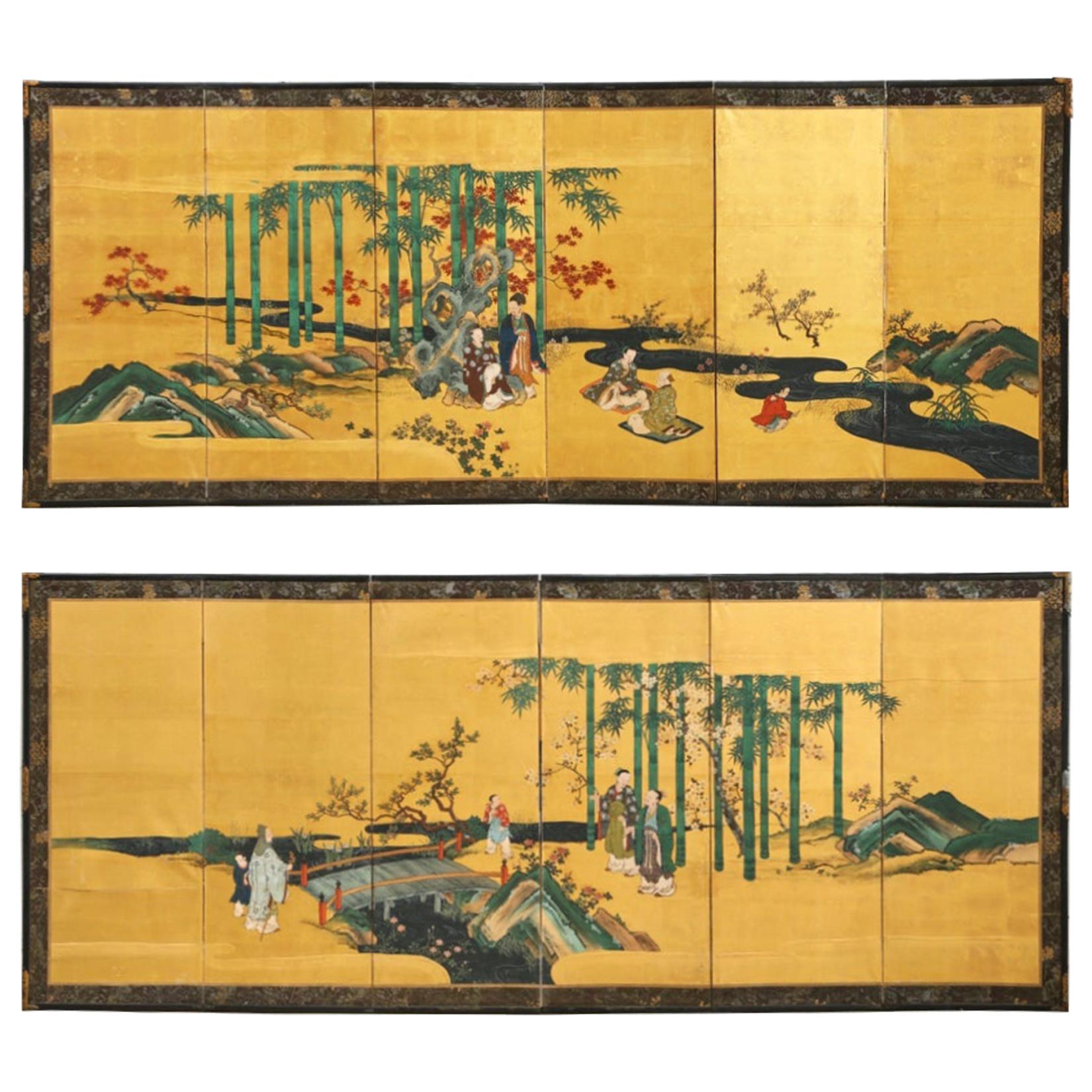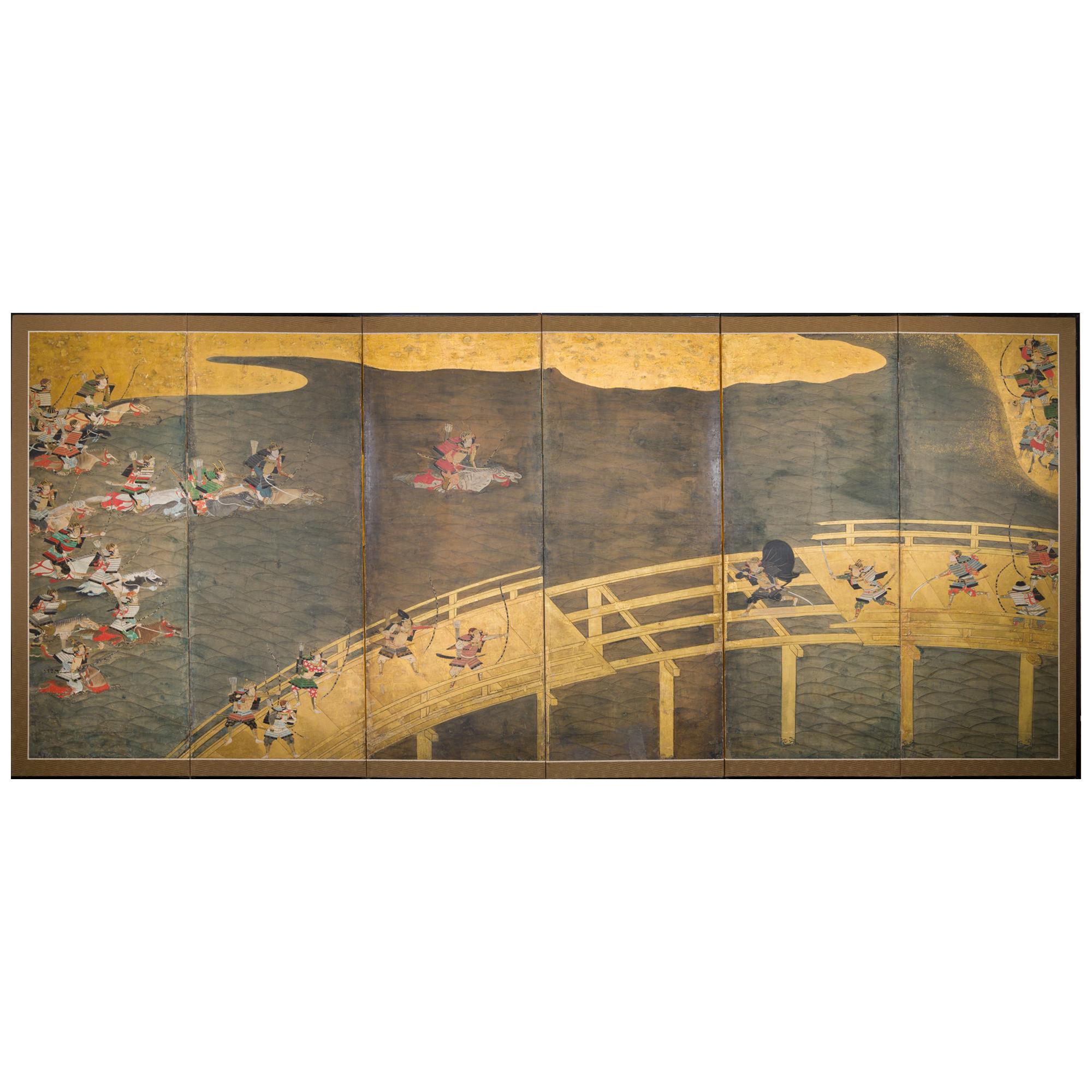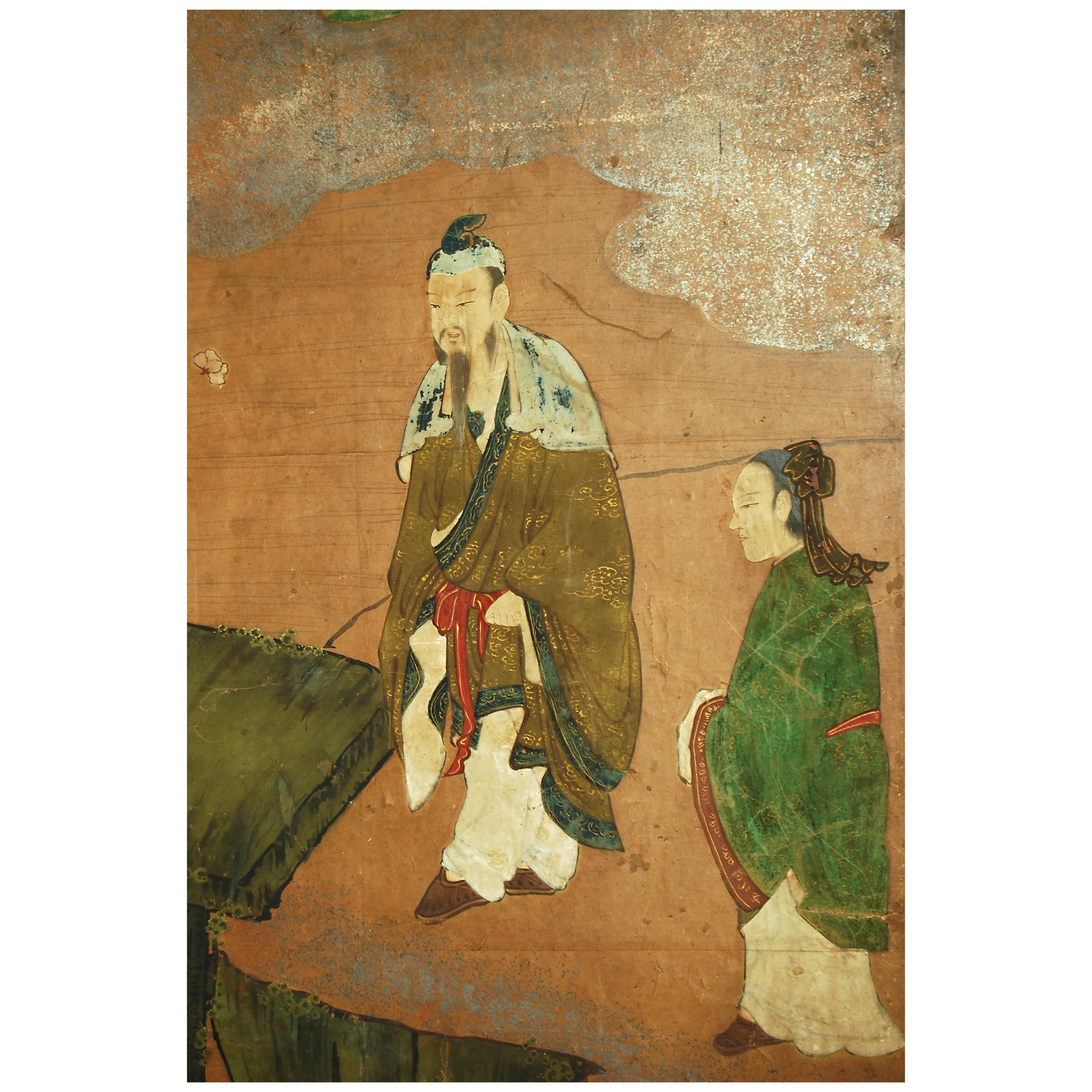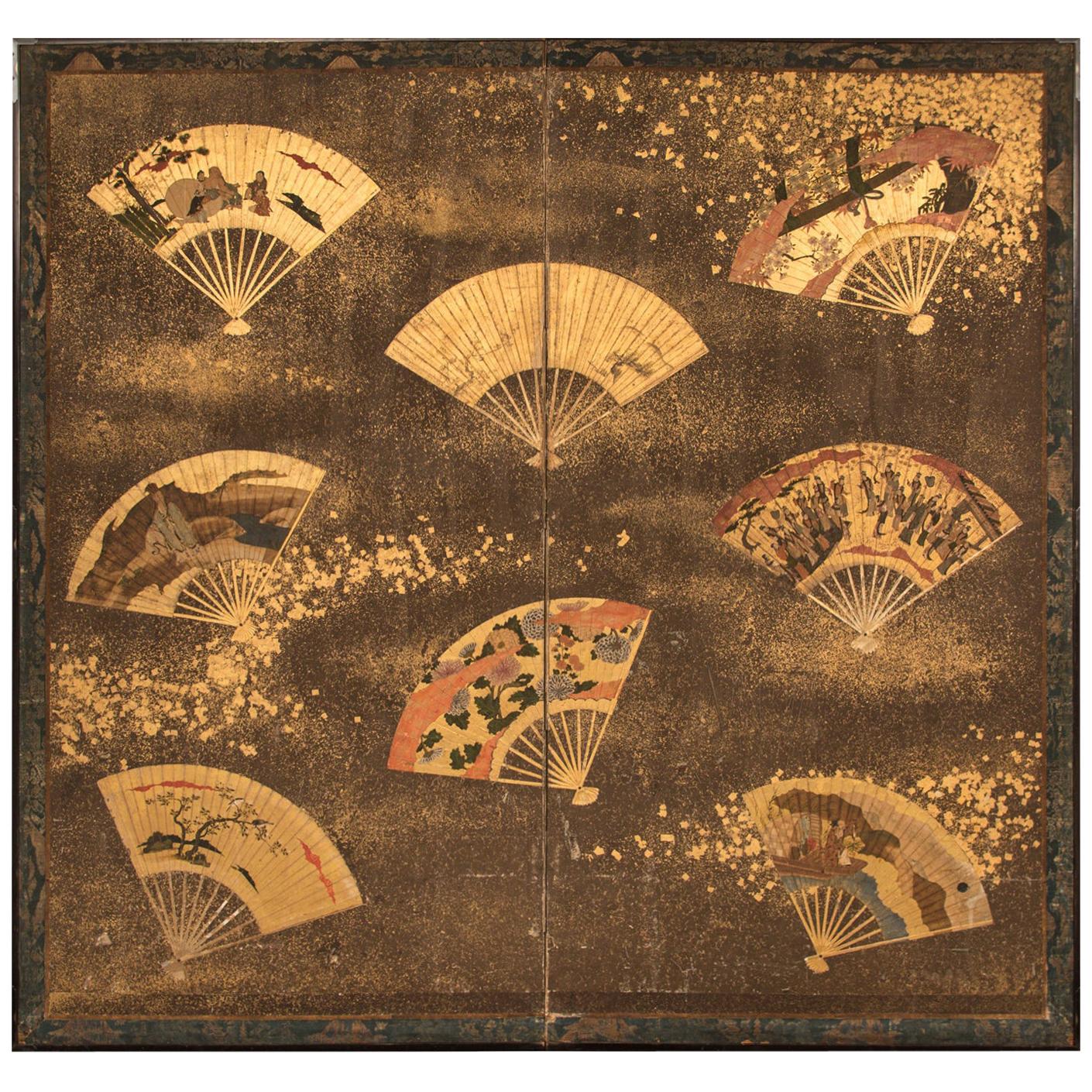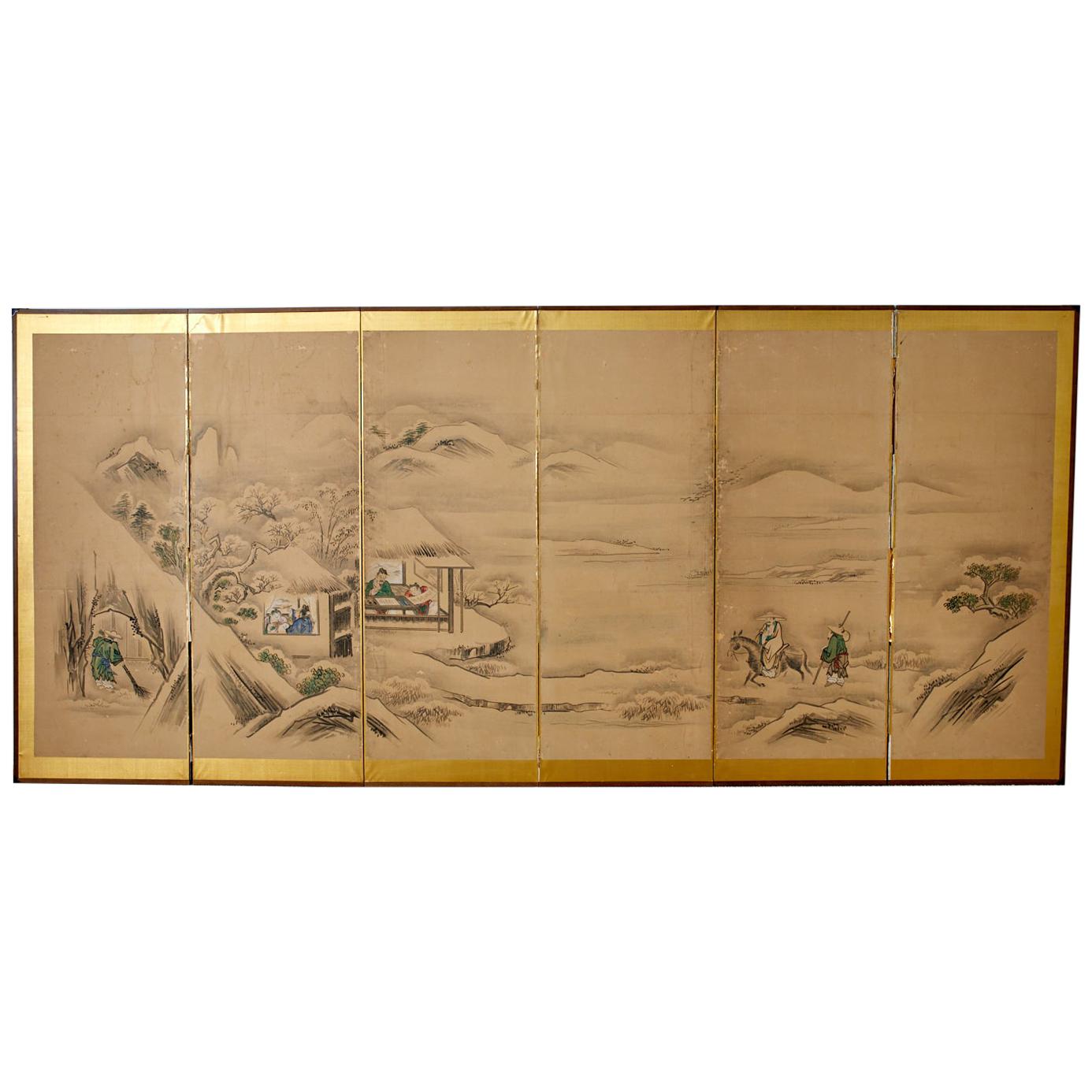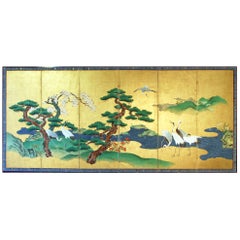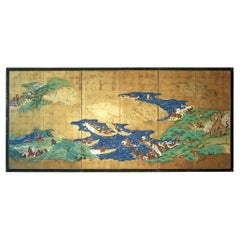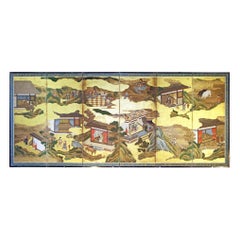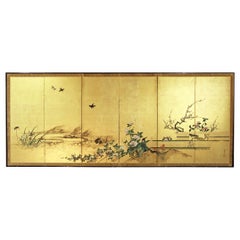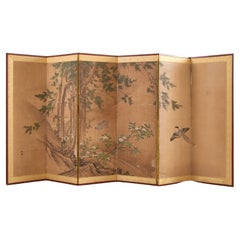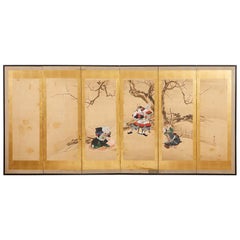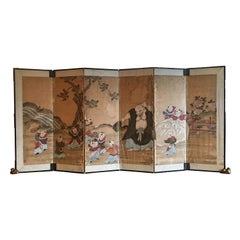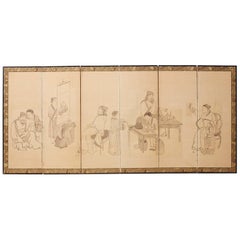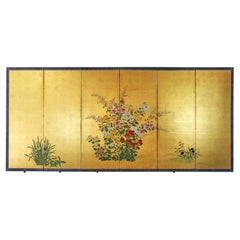
18th Century Edo Japanese Folding Screen Six Panels "Rinpa School" Gold Leaf
View Similar Items
Want more images or videos?
Request additional images or videos from the seller
1 of 7
18th Century Edo Japanese Folding Screen Six Panels "Rinpa School" Gold Leaf
About the Item
- Dimensions:Height: 68.51 in (174 cm)Width: 148.43 in (377 cm)Depth: 0.79 in (2 cm)
- Style:Edo (Of the Period)
- Materials and Techniques:
- Place of Origin:
- Period:1780-1789
- Date of Manufacture:circa 1780
- Condition:
- Seller Location:Brescia, IT
- Reference Number:1stDibs: LU5628223944562
About the Seller
5.0
Recognized Seller
These prestigious sellers are industry leaders and represent the highest echelon for item quality and design.
Established in 1981
1stDibs seller since 2021
17 sales on 1stDibs
Typical response time: 1 hour
Authenticity Guarantee
In the unlikely event there’s an issue with an item’s authenticity, contact us within 1 year for a full refund. DetailsMoney-Back Guarantee
If your item is not as described, is damaged in transit, or does not arrive, contact us within 7 days for a full refund. Details24-Hour Cancellation
You have a 24-hour grace period in which to reconsider your purchase, with no questions asked.Vetted Professional Sellers
Our world-class sellers must adhere to strict standards for service and quality, maintaining the integrity of our listings.Price-Match Guarantee
If you find that a seller listed the same item for a lower price elsewhere, we’ll match it.Trusted Global Delivery
Our best-in-class carrier network provides specialized shipping options worldwide, including custom delivery.More From This Seller
View AllJapanese Folding Screen Six Panels Painted on Gold Leaf
By Japanese Studio
Located in Brescia, IT
Paravento a sei pannelli di scuola giapponese Kano: paesaggio con bellissime ed eleganti gru vicino al fiume, con alberi di pino e sakura.
Dipinto a mano con pigmenti minerali ed inc...
Category
Antique Early 19th Century Japanese Edo Paintings and Screens
Materials
Gold Leaf
Edo 19th Century Japanese Folding Screen Six Panels Battle of Menpei
By Japanese Studio
Located in Brescia, IT
Samurai on horseback and by boat from the famous battle of Menpei Japanese folding screen six-panel of "Tosa School" painted with mineral pigments on vegetable on golden silk , earl...
Category
Antique Early 19th Century Japanese Edo Paintings and Screens
Materials
Gold Leaf
Japanese Tosa School Framed Six Panel Screen Gold Leaf
By Japanese Studio
Located in Brescia, IT
Japanese six-panel screen of the famous "Tosa school" made by an anonymous artist of the mid-18th century, work painted in the classic way with colored pigments and inks on vegetable...
Category
Antique Mid-18th Century Japanese Edo Paintings and Screens
Materials
Gold Leaf
Japanese Folding Screen Landscape paint on Gold Leaf Six Panels
By Japanese Studio
Located in Brescia, IT
Folding screen depicting a landscape by a painter of the Rinpa school, early 19th century.
Six panels painted in ink on gold leaf and "gofun" on vegetable paper.
Rinpa is one of the ...
Category
Antique Early 19th Century Japanese Edo Paintings and Screens
Materials
Gold Leaf
Edo Landscape Japanese Folding Screen
By Japanese Studio
Located in Brescia, IT
Refined work by a painter from the first half of the 19th century, from the landscape of the "Rinpa" school by a painter from the end of the 18th century, the Rinpa school.
Six panels painted in ink on gold leaf and "gofun" on vegetable paper.
The flowers are made with the "gofun" technique, natural or pigmented white oyster powder.
Rinpa is one of the major historical schools of Japanese painting. The style was consolidated by the brothers Ogata Korin (1658–1716) and Ogata Kenzan (1663–1743).
This folding screen has a very clean design that leaves plenty of room for the beautiful golden landscape.
It comes flat and you can easily hang it with our hooks.
Lucio Morini...
Category
Antique 18th Century Japanese Edo Paintings and Screens
Materials
Gold Leaf
Two-panel screen of " Rinpa School"
By Japanese Studio
Located in Brescia, IT
Floral scene of a Rimpa School garden with polychrome chrysanthemum flowers.
Two-panel screen painted in pigment on gilded rice paper of beautiful size and well preserved.
Bold color...
Category
20th Century Japanese Showa Paintings and Screens
Materials
Gold Leaf
You May Also Like
19th Century Japanese Edo Six Panel Kano School Landscape Screen
Located in Rio Vista, CA
Late Edo period 19th century Japanese six-panel landscape screen featuring a cypress tree over a flowering hibiscus with a pair of hototogisu birds. Kano school painted with ink and ...
Category
Antique 19th Century Japanese Edo Paintings and Screens
Materials
Silk, Wood, Paper
Japanese Edo Six Panel Screen Yoshitsune and Benkei
Located in Rio Vista, CA
Spectacular 19th century Japanese late Edo period six-panel byobu screen depicting Yoshitsune and Benkei, two heroes of Japanese folklore. Crafted in ink and natural color pigments on mulberry paper with thick gold leaf borders on each panel. The character Yoshitsune is seated under a blossoming cherry tree in full armor holding a fan. The warrior priest or monk Benkei is depicted kneeling on a leopard skin...
Category
Antique 19th Century Japanese Edo Paintings and Screens
Materials
Brass, Gold Leaf
$3,400 Sale Price
29% Off
Japanese Six Panel Screen with Hotei, Edo Period, Early 19th Century
Located in Austin, TX
A delightful Japanese six panel painted paper screen featuring the beloved figure Hotei, Edo Period, early 19th century.
Hotei, called Budai in China, and known as the Laughing Buddha or Fat Buddha in the West, is considered to be an emanation of Maitreya, the Buddha of the Future.
In Japan, he also holds a special place as one of the Seven Lucky Gods, being the god of fortune, and protector of children.
He is always portrayed as a mirthful and corpulent man, dressed in loose robes that show off his round belly. He carries a sack with him, said to be filled with treasure. As the protector of children, he is often portrayed with them playing on or around him, as he is here. The children portrayed in this screen are dressed in Chinese style clothing...
Category
Antique Early 19th Century Japanese Edo Paintings and Screens
Materials
Silk, Paper
Japanese Edo Period Six Panel Screen of Chinese Scholars
Located in Rio Vista, CA
Fascinating 19th century Japanese late Edo period six pane funpon screen. Large scale depicting Chinese scholars and officials engaged in leis...
Category
Antique 19th Century Japanese Edo Paintings and Screens
Materials
Silk, Wood, Paper
Pair of Six Panel Japanese Edo Screens Chrysanthemums Along Fence
Located in Rio Vista, CA
Remarkable pair of early 19th century Japanese late Edo period screens depicting summer chrysanthemums growing along a brushwood fence. Ink and...
Category
Antique 19th Century Japanese Edo Paintings and Screens
Materials
Silver Leaf
Pair of Japanese Edo Six Panel Screens the Seven Sages
Located in Rio Vista, CA
Fantastic pair of 19th century Japanese late Edo/early Meiji period six-panel screens titled The seven sages of the bamboo grove. The Kano school screens...
Category
Antique 19th Century Japanese Edo Paintings and Screens
Materials
Brass, Gold Leaf
Recently Viewed
View AllMore Ways To Browse
18th Century Folding Screen
Japanese Screen Rinpa
Rinpa School
20th Japan Painting On Silk
Chinese Wall Screens
Chinese Silk Screen
Japanese Folding Screen Art
Japan Gold Two Panel Painting
Chinese Hand Painted Panel Screen
Lacquered Red Screens
Mulberry Silk
Vintage Brass Seal
Antique Wooden Screen
Black Lacquer Asian Painting
Panels Hand Painted Bird Flower
Antique Chinese Painting Of Birds
Gold Chinese Screen
Hand Painted Japanese Gold Screen

